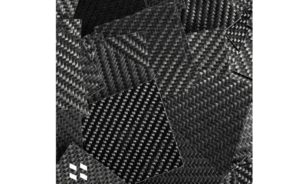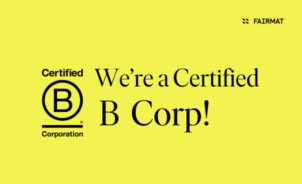In the fast-evolving landscape of material science, carbon fiber stands out for its unmatched strength, rigidity, and lightweight properties. These characteristics are driving innovation across various industries, from aerospace to sports equipment. However, the production and disposal of carbon fiber pose significant environmental challenges.
The Carbon Fiber Waste Problem
Despite its benefits, carbon fiber production generates considerable waste. According to Composites World, around 30% of carbon fiber production ends up as scrap. Additionally, end-of-life (EoL) carbon fiber waste is accumulating at an alarming rate, with approximately 62,000 tonnes produced annually, primarily by the aircraft and wind energy sectors. As newer planes and turbines reach the end of their life cycles, this figure is expected to rise significantly, potentially leading to millions of tonnes of waste over the next few decades.
A recent study by McKinsey projects that without significant advancements in recycling technologies and practices, the cumulative waste of carbon fiber could reach staggering amounts over the next 50 years. The study emphasizes the need for substantial investments in recycling infrastructure and the adoption of circular economy principles to manage waste effectively and create economic value (McKinsey & Company).
Why This Matters:
- Non-biodegradable: Carbon fiber doesn’t break down, posing long-term environmental hazards.
- Difficult Recycling: Traditional recycling methods are complex, energy-intensive, and often economically unfeasible, limiting material reuse.
- Landfill Accumulation: With few recycling options, much of this waste ends up in landfills, contributing to pollution.
The Fairmat Solution
Fairmat, founded in 2020 by Benjamin Saada, is a French deeptech company at the forefront of carbon fiber recycling. Saada, an accomplished engineer with over 15 patents and a strong entrepreneurial background, leads the charge against carbon emissions and advocates for a circular economy. Fairmat has developed proprietary mechanical and robotic recycling technologies that transform carbon fiber waste into advanced recycled materials. These materials retain mechanical properties nearly identical to those of virgin carbon fiber, making them suitable for high-performance applications across various industries, from sports to energy.
Key Innovations:
- Mechanical Robotic Recycling: Fairmat’s cutting-edge technology produces 100% recycled, high-performance materials.
- Circular Economy Practices: The company promotes the development of products designed for easier disassembly and recycling, ensuring a sustainable lifecycle.
Collaborative Efforts
Fairmat’s success hinges on collaboration. The company works with industry leaders like Hexcel, Siemens Gamesa, Dassault Aviation, Exel Composites, and renowned brands such as Decathlon, Withings, and DPS Skis. These partnerships drive Fairmat’s mission of closing the loop on carbon fiber waste, making significant strides in sustainability.
Scaling Globally
Fairmat’s innovative technology and business model are designed for global scalability. Here’s how:
- Proven Track Record: Fairmat’s success in Europe and recent expansion to the USA demonstrate its ability to replicate its model across different markets.
- Strategic Partnerships: Collaborations with major industry players and local governments facilitate smooth market entry and expansion.
- Advanced Technology: Fairmat’s proprietary mechanical and robotic recycling processes can be adapted to various industrial settings, ensuring consistent and efficient recycling operations.
- Sustainable Business Practices: The emphasis on circular economy practices ensures long-term sustainability and compliance with international environmental regulations.
Fairmat is actively exploring opportunities to expand into new regions, including Asia, where the demand for sustainable materials is growing rapidly.
Join the Movement
Fairmat’s journey from waste to wonder is a testament to the power of innovation and collaboration in creating a sustainable future. As we continue to face the challenges posed by carbon fiber waste, Fairmat stands at the forefront, leading the way with groundbreaking solutions.
A recent study by the Ellen MacArthur Foundation emphasizes the importance of adopting circular economy principles to mitigate waste effectively. By redesigning products and systems to keep materials in use, significant reductions in greenhouse gas emissions and environmental impact can be achieved (Ellen MacArthur Foundation).
Let’s champion sustainability for a greener tomorrow. 🌱🔄 Join the Loop and make a difference!
For more information, visit Fairmat and connect with us on LinkedIn to stay updated on our latest initiatives and achievements.




